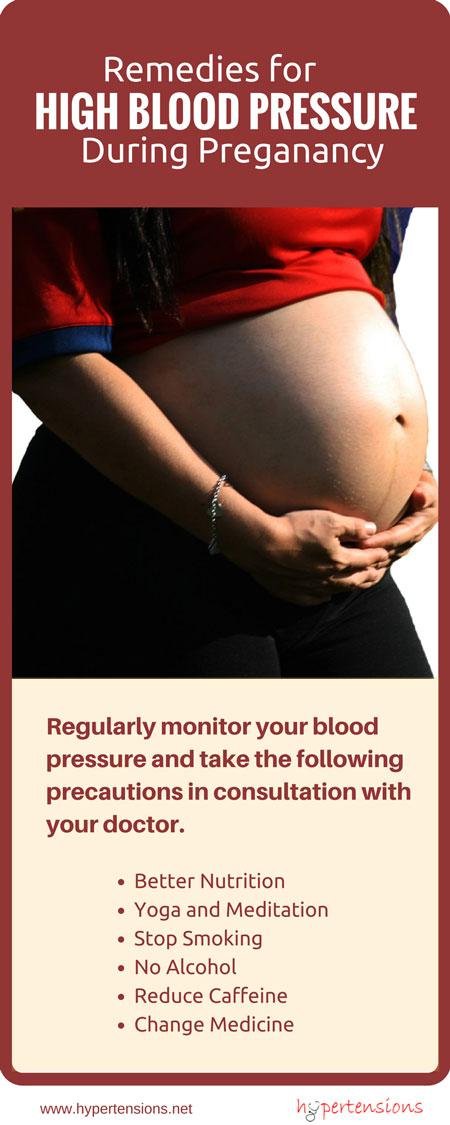High blood pressure, also known as hypertension, affects around 5-8% of pregnant women. While that might sound concerning, it's important to remember that most pregnancies proceed smoothly without this complication.
In fact, thanks to increased circulation and hormonal changes, your blood pressure might even dip a bit lower after delivery!
However, staying informed about high blood pressure during pregnancy and its potential effects is crucial. This informative guide will equip you with the knowledge you need to navigate this important time and ensure a healthy journey for both you and your baby.
While pregnancy often leads to low blood pressure for many women, some may experience the opposite – pregnancy and high blood pressure. Generally, a consistent reading above 140/90 mm Hg is considered high blood pressure. The good news is that with proper monitoring and management, you can still have a healthy pregnancy even with this condition.
What Causes High Blood Pressure During Pregnancy?
It's important to understand that high blood pressure in pregnancy often stems from pre-existing health conditions (1) , not the pregnancy itself. Here are some common risk factors to be aware of:
- Leading an inactive lifestyle: Regular exercise is crucial for overall health, and during pregnancy, it can help keep your blood pressure in check.
- Being overweight or obese: Maintaining a healthy weight before and during pregnancy is beneficial for both mom and baby.
- Having kidney disease: If you have any pre-existing kidney problems, it's essential to discuss them with your doctor before and during pregnancy, as they can affect blood pressure.
- Smoking: Smoking is detrimental to your health in general, and during pregnancy, it can significantly increase your risk of high blood pressure and other complications.
- Consuming alcohol: Alcohol consumption during pregnancy is a big no-no, and it can also contribute to high blood pressure.
- Family history of high blood pressure: If hypertension runs in your family, it's wise to be extra vigilant about monitoring your blood pressure throughout your pregnancy.
- Being over 40 years old: Age can be a factor in blood pressure regulation, so regular monitoring is especially important if you're pregnant and over 40.
- Having existing high blood pressure: If you already have high blood pressure before pregnancy, it's crucial to work closely with your doctor to manage it effectively throughout your pregnancy journey.
First pregnancies come with a slightly increased risk of high blood pressure, as does carrying multiples (twins, triplets). Additionally, assisted reproductive technologies (like IVF) might also be a factor.
Wondering, "What is a safe blood pressure level ?" Generally, a consistent reading above 140/90 mm Hg is considered high blood pressure. However, your doctor will monitor your blood pressure throughout your pregnancy and determine what's considered a safe range for you individually.
Many women with high blood pressure during pregnancy may not experience any noticeable symptoms. So, how can you tell if you have high blood pressure? Regular prenatal appointments with your doctor are crucial for monitoring your blood pressure. They will also be able to identify any potential signs like persistent headaches or abnormal swelling in your hands and feet (edema).
Potential Complications of Hypertension During Pregnancy
The good news is that with proper management through lifestyle changes and medication if needed, high blood pressure can often be controlled during pregnancy. However, if left unchecked, it can lead to serious complications for both you and your developing baby, especially if it persists after 20 weeks.
One potential complication is preeclampsia, a condition that can cause:
- Persistent headaches that don't go away with typical remedies.
- Abnormal swelling in your hands and feet, also known as edema.
If you experience these symptoms, it's essential to consult your doctor immediately. Early detection and treatment of preeclampsia can help ensure a healthy outcome for both you and your baby.
High blood pressure can also affect the placenta, the organ that nourishes your baby. This can potentially lead to premature birth or cesarean sections, which can be challenging for both mom and baby.
Managing High Blood Pressure : Taking Charge of Your Health

The key to managing high blood pressure during pregnancy is proactive care. Here are some key strategies you can implement:
- Regular Blood Pressure Checks: Schedule regular prenatal appointments with your doctor to monitor your blood pressure consistently. Early detection allows for timely intervention and management.
- Healthy Weight Management: While weight gain is expected during pregnancy, maintaining a healthy weight through a balanced diet and moderate exercise can help control blood pressure. However, it's important to avoid restrictive dieting during pregnancy, as that can be harmful to your baby'
- Nutritional Guidance: Consulting with a registered dietitian can help you create a pregnancy-safe meal plan that supports both your and your baby's health while keeping your blood pressure in check. They can provide guidance on incorporating essential nutrients that contribute to healthy blood pressure regulation.
- Lifestyle Adjustments: Making small lifestyle changes can have a big impact. Limiting caffeine and alcohol consumption, and quitting smoking altogether are crucial for managing high blood pressure. These habits not only benefit your blood pressure but also contribute to your overall health and the well-being of your baby.
- Medication: If necessary, your doctor will prescribe medication specifically safe for pregnancy to control high blood pressure. Can high blood pressure cause miscarriage? While high blood pressure can increase the risk of certain pregnancy complications, miscarriage is less common. However, it's important to manage your blood pressure effectively throughout your pregnancy to minimize any potential risks.
Natural Ways to Lower Blood Pressure During Pregnancy (with Doctor's Approval)
While medication might be necessary in some cases, there are also natural ways to lower blood pressure during pregnancy, but always discuss them with your doctor first:
- How to lower blood pressure naturally while pregnant at home: Light exercise like walking, swimming, or prenatal yoga can be beneficial. Remember to get your doctor's approval before starting any new exercise routine during pregnancy.
- Best exercises to lower blood pressure : Your doctor can recommend specific exercises suitable for your pregnancy stage and fitness level.
- Yoga poses during pregnancy: Certain yoga poses can help promote relaxation and potentially lower blood pressure. However, some poses may not be recommended during pregnancy. It's crucial to consult a certified prenatal yoga instructor for guidance.
Can stress cause high blood pressure while pregnant? Yes, stress can contribute to high blood pressure (3). Relaxation techniques like meditation, deep breathing exercises, and getting enough sleep can help manage stress and potentially lower blood pressure.

Long-Term Effects of Untreated High Blood Pressure During Pregnancy
Untreated high blood pressure can increase the risk of various complications during pregnancy for both mother and baby (2), including:
- Preeclampsia: As mentioned earlier, this is a serious condition that can affect the placenta and other organs.
- Placental abruption: This is a separation of the placenta from the uterine wall, which can deprive the baby of oxygen and nutrients.
- Intrauterine growth restriction (IUGR): This condition can cause the baby to grow slower than expected.
- Premature birth: High blood pressure can increase the risk of delivering your baby before 37 weeks.
- Cesarean section: In some cases, high blood pressure may necessitate a cesarean section delivery.
How to Prevent Preeclampsia
There's no guaranteed way to prevent preeclampsia, but managing your high blood pressure effectively in pregnancy can significantly reduce the risk. Regular prenatal care, a healthy lifestyle, and following your doctor's recommendations are crucial.
Can High Blood Pressure Cause Premature Birth? High blood pressure can increase the risk of premature birth. This is why close monitoring and proper management are essential.
Risks of C-Section Due to High Blood Pressure Pregnancy
While a vaginal delivery is preferred whenever possible, sometimes a cesarean section might be necessary due to high blood pressure or other complications. If you have high blood pressure, your doctor will discuss the risks and benefits of both delivery methods with you.
Lowering Blood Pressure After Pregnancy Naturally
After delivery, your blood pressure should gradually return to pre-pregnancy levels. However, some women may experience postpartum high blood pressure. Maintaining a healthy lifestyle with a balanced diet, regular exercise, and stress management can all contribute to lowering blood pressure after pregnancy.
Conclusion
High blood pressure during pregnancy can be a concern, but with proper prenatal care, lifestyle modifications, and potentially medication, you can still have a healthy pregnancy. By staying informed and working closely with your doctor, you can take charge of your health and ensure a safe and happy journey for both you and your baby.

